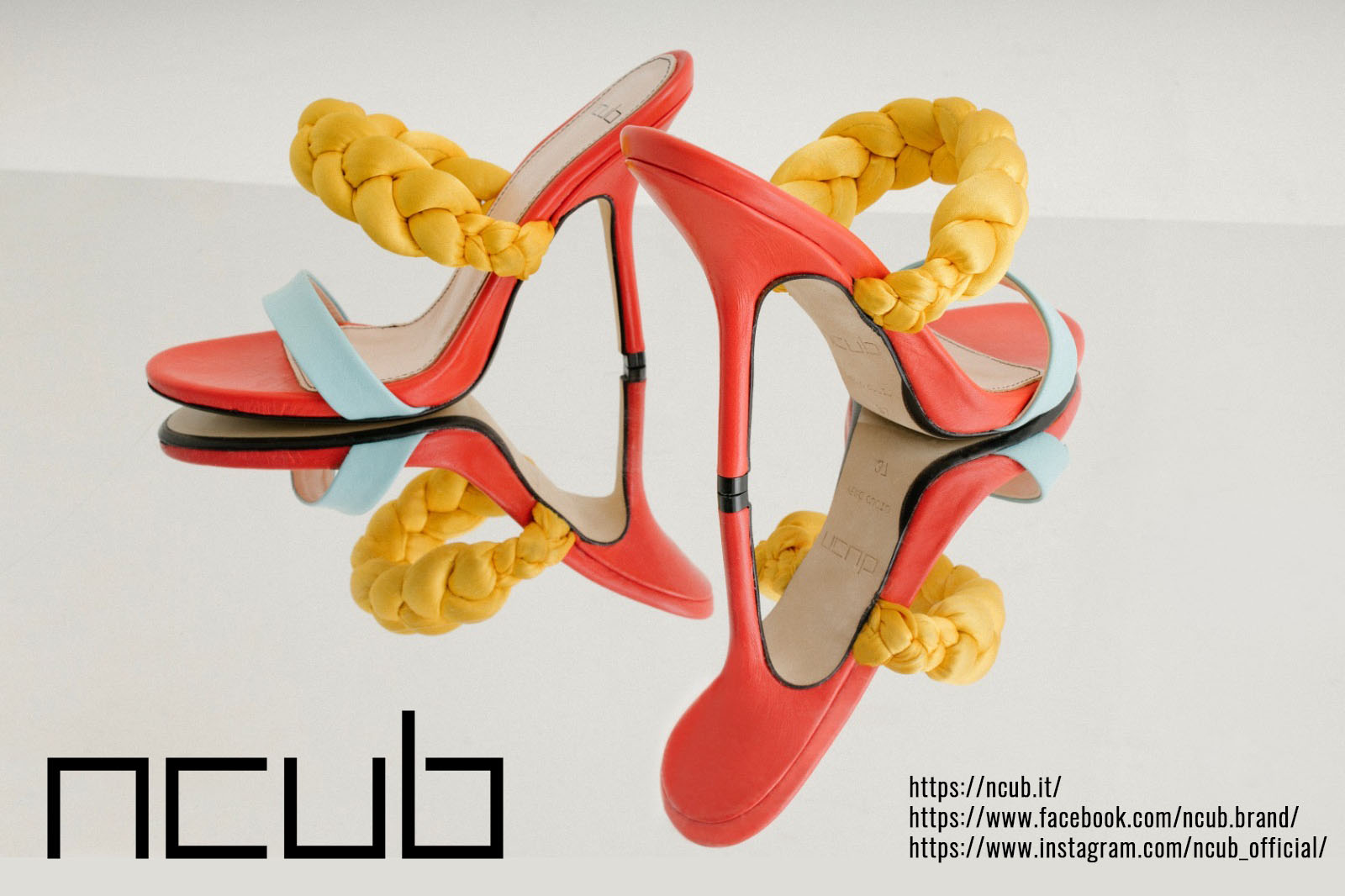Dal quotidiano “The Whashington Post”: Divisive billionaire led Italy on his own terms for decades
Share
BY JASON HOROWITZ
For more than three decades, the diminutive colossus bestrode the narrow Italian peninsula, monopolizing the media, manipulating the levers of power, and capturing the imagination of friends and foes alike.
Former prime minister Silvio Berlusconi of Italy, a media mogul who dominated and divided his country for decades through a combination of showman charm, scofflaw bombast, and ruthless application of financial and political power, died June 12 at a hospital in Milan. He was 86.
A spokeswoman for Mr. Berlusconi confirmed the death to The Washington Post but did not provide a cause, speaking on the condition of anonymity based on ground rules typical for Italian media. He had leukemia and a history of cardiac trouble.
Mr. Berlusconi, a center-right leader, had served as prime minister four times since 1994. He was also one of the world’s richest men, having built a multibillion-dollar business empire.
Through his holding company, Mr. Berlusconi controlled television channels and newspapers, life insurance and movie production companies, real estate, and the world-class soccer team A.C. Milan.
“The best in the world” is how the billionaire prime minister described himself in one typical flourish of bravado. “All the other world leaders wish they could be as good as I am.” Everything was hyperbolic. When he was diagnosed with covid-19 in 2020, he called supporters from the hospital and claimed that doctors had told him his case was “in the top five in terms of the strength of the virus.”
For more than three decades, the diminutive colossus bestrode the narrow Italian peninsula, monopolizing the media, manipulating the levers of power, and
capturing the imagination of friends and foes alike.
Il Cavaliere, or the Knight, as he was called, did this almost entirely on his own terms. He rode his television airwaves into the center of the vituperative political arena and used all the weapons at his disposal to stun the opposition, lasso a coalition out of warring allies and, above all, fight for his own survival.
Mr. Berlusconi’s preoccupation with self-preservation — against enemies real, imagined and manufactured — often took priority over the regular business of the state.
Under Mr. Berlusconi’s distracted watch, Italy slipped into social malaise and economic disaster. Ultimately, the free markets that the Milan businessman championed so zealously showed no confidence in his ability to guide the country out of a 2011 debt crisis, leading to his ouster.
The defeat, and a subsequent conviction for tax fraud, reduced the man who had promised to rescue Rome to a perma-tanned caricature known internationally for pursuing his own interests, friendships with foreign dictators, and relationships with much younger women, some of them allegedly for hire.
But within Italy, Mr. Berlusconi remained key, reinventing himself as a soothing grandfather figure, kingmaker and voice of reason as the country lurched even further right under populist leaders.
“To the mass of the people, Berlusconi appeared capable of delivering change. He appeared new,” said Roberto D’alimonte, a political scientist at the Romebased university Luiss. “Some will remember him as a man who could have done more to modernize the country. For others, he will be the great corruptor of Italian society, and it will take a generation to recover from the malaise that he has instilled.”
For his entire time in the public eye, Mr. Berlusconi — 5-foot-5, pudgy in build, creative in hairline and tangerine in complexion — towered over all other debate topics. Even after he left office, he had a hard time staying away.
Mr. Berlusconi won election three times as prime minister, including a five-year stretch in a nation accustomed to instability.
His boosters credit him with overhauling a politically ossified system and inspiring an entire class of entrepreneurs. For them, he injected life into the dreary state-run television organization, modernized markets, won soccer trophies with A.C. Milan and built a powerhouse center-right party from scratch.
Mr. Berlusconi revolutionized campaigning in Italy by updating cult-of-personality propaganda to the mass media age. He advertised himself as an irrepressible individualist and earthy everyman unfairly victimized by communist judges, ivory tower academics and bureaucratic killjoys. He talked about cutting taxes and slashing spending, the sorts of things the government-addicted gerontocracy rarely broached. His airbrushed visage watched over Italy from the television channels, magazine covers, newspaper pages and highway billboards he owned.
That bright version of Mr. Berlusconi eclipsed the darker side proffered by his perennially frustrated critics at home and abroad. It also obscured a life remarkable without Photoshop — rife with political intrigue, cutthroat business deals, courtroom drama, crass jokes and sex scandals. Mr. Berlusconi was Europe’s most colorful leader at the turn of the 21st century.
Building a path to power
Silvio Berlusconi was born Sept. 29, 1936, in Milan to a banker and a housewife. He earned extra cash in school writing papers for other students. He helped pay for his law degree at the University of Milan in 1961 by selling vacuum cleaners and singing in a band that played cruise ships and resorts.
By 27, he had formed a real estate company that ultimately earned him the nickname “King of Bricks,” and then built Milano 2, a sprawling suburb that provided the financial base for his ambitions.
Mr. Berlusconi gobbled up local TV channels. To circumvent an Italian law at the time that allowed only state-owned channels to broadcast live nationwide, he dispatched couriers on motorcycles to deliver prerecorded videocassettes to local stations. The same program then played on all his channels at slightly different times, creating a de facto network.
Mr. Berlusconi had help in high places. Prime Minister Bettino Craxi, a moderate leader of the Socialist Party, rose to the top of Italian government in 1983 just as Mr. Berlusconi reached the pinnacle of Italian media. The two men quickly realized they could help each other consolidate power.
With Craxi in power, Mr. Berlusconi added two more national channels in 1983 and 1984. He spent billions of dollars to acquire the right to air U.S. sitcoms and movies. Millions of viewers tuned in to watch reruns of American soaps such as “Dallas” or to see “Colpo Grosso,” an Italian striptease program masquerading as a game show.
Mr. Berlusconi — who embraced marketing mottos such as “Always carry the sun in your pocket!” — diversified. Under the umbrella company Fininvest, he added an advertising wing, a chain of department stores, a film-production company, radio, newspapers and magazines, and, in 1986, A.C. Milan. The team became a powerhouse and useful political metaphor.
And in exchange for Craxi’s political protection, Mr. Berlusconi’s critics charged, he furnished his patron with positive coverage and lots of money. Italian prosecutors alleged that Craxi, who resigned in 1987, received millions of mysterious dollars from Mr. Berlusconi’s Fininvest that went into private Swiss bank accounts.
The two men were close. Craxi served as best man at Mr. Berlusconi’s 1990 marriage to his second wife, Veronica Lario, whom he had met a decade earlier when she performed topless in a play at a Milan theater he owned. (He had met her while married to his first wife, Carla Dall’oglio, with whom he had two children.) Mr. Berlusconi had three more children. The couple divorced in 2014.
Survivors include his children; a brother; 15 grandchildren; and a great-grandchild.
His attempt in 1990 to take over a publishing conglomerate hit a legal bump that would result in decades of investigations of bribery against Mr. Berlusconi.
The political order within which Mr. Berlusconi prospered collapsed in 1992 when prosecutors launched the “Clean Hands” investigation that revealed a culture of widespread corruption known as “Bribesville.” The scandal laid waste to the ethically flexible Christian Democrat political establishment, but also destroyed Mr. Berlusconi’s political patron, Craxi, who fled to Tunisia in 1994 to avoid prison on corruption charges.
That same year, with his friends out of power and his left-leaning enemies eager to break up his debt-addled business empire, Mr. Berlusconi took action.
On Jan. 26, 1994, his television news programs broadcast Mr. Berlusconi’s dramatic announcement that he would, in soccer parlance, “take the field” to protect the country from anti-freemarket leftists who “do not believe in the individual.”
He formed the political party Forza Italia, named after the national soccer chant (“Go Italy”), and populated it with his own advertising executives. He promised tax cuts and greater privatization of the public sector to promote efficiency.
Three months after taking the field, Mr. Berlusconi was elected prime minister.
Throughout much of Mr. Berlusconi’s initial stint in office, opposition leaders demanded in vain for him to sell off his businesses to avoid a conflict of interest. They criticized his decree prohibiting the arrest of people for political corruption and fraud, which freed thousands of defendants in the Bribesville scandals — including, potentially, his brother.
After seven months, Mr. Berlusconi’s governing coalition came crashing down. Mr. Berlusconi’s detractors breathed a sigh of relief, dismissing him as a fleeting footnote in Italian politics. But in political exile, he cemented his identity as the leader of a new center-right space. The left-leaning government failed to pass meaningful conflict-of-interest laws and fell victim to infighting. In 2001, Mr. Berlusconi had another shot at power, and he took it.
Accusations and scandals
That June, Mr. Berlusconi swept back into office with a stronger coalition and widespread popularity. And he was no longer a novice. He expertly navigated internecine squabbles between his allies and ruled for five uninterrupted years.
During that time, he declared himself his own foreign minister with allegiance to the United States, but also befriended strongmen such as Vladimir Putin of Russia, with whom he wore furry hats at a Black Sea dacha. In part to prevent migrant waves from northern Africa, he built a relationship with Libyan leader Moammar Gaddafi, whom he gleefully let play ringmaster in a Rome ceremony complete with Bedouins on thoroughbreds.
It was also a period in which Mr. Berlusconi’s temper, bawdy sense of humor and loose tongue conspired to appoint him king of the gaffe. He compared a German lawmaker to a Nazi concentration-camp guard; said Italian fascist leader Benito Mussolini never “killed anyone”; and announced to the New York Stock Exchange that “another reason to invest in Italy is that we have beautiful secretaries.”
More substantively, Mr. Ber
lusconi’s growing legion of critics charged that the prime minister was misusing his official power for legal protection, spending time and energy pushing tailormade laws through Parliament to shield himself from prosecution and protect his business empire.
“If I, taking care of everyone’s interests, also take care of my own, you can’t talk about a conflict of interest,” he said in a 2001 speech to industrialists in Rome.
Italian magistrates accused Mr. Berlusconi of everything from tax evasion to bribery to consorting with the Mafia. Throughout his years in and out of power, dozens of trials against Mr. Berlusconi ended either in acquittals or expired under statutes of limitations.
Mr. Berlusconi’s greatest impact on his country’s criminal justice system may have been his unrelenting characterization of its magistrates as a politically motivated cabal of communists — “red robes,” as he called them. That demonizing, from the mouth of the nation’s leader, and amplified by all his media outlets, eroded faith in a key, if malfunctioning, democratic institution.
In 2006, Mr. Berlusconi lost reelection. His popularity was damaged by his unwavering support for the United States and its war in Iraq, to which he contributed Italian troops. Left-leaning opposition members thought they had rid themselves of their scourge once and for all. And when he collapsed onstage during a 2006 political rally and underwent heart surgery, they started talking about him in the past tense. Again, prematurely.
The leftist opposition to Mr. Berlusconi, vehement as it was, failed to renew itself, offer a real political alternative or attract voters in the more autonomous northern regions.
In April 2008, Mr. Berlusconi returned and consolidated power. Again he passed laws to protect himself from prosecution, but with such a solid majority in both houses of Parliament that outrage seemed futile.
It was then, when Mr. Berlusconi seemed most untouchable, that his own appetites aided his self-destruction.
In April 2009, Veronica Berlusconi called “shameless trash” her husband’s plan to give seats in Parliament to aspirant showgirls. Five days later, she announced she was leaving the man who “consorts with minors,” in apparent reference to Mr. Berlusconi’s attendance a month earlier at the 18th birthday of an underwear model in Naples who called him “Papi.”
The summer ended with an unstable man hitting Mr. Berlusconi in the face with a statuette of the Milan Cathedral, breaking his teeth and nose. The attack put Mr. Berlusconi back in his preferred political posture of victim. His poll numbers climbed, and Mr. Berlusconi returned to appointing longlegged, full-lipped former nude models to city councils, Parliament and his cabinet.
And then in 2010, at 74, Mr. Berlusconi was accused of paying for sex with an underage Moroccan woman, Karima El Mahroug, known as Ruby the Heart Stealer. More women came forward, revealing details of bacchanalian “bunga bunga” parties, a phrase that captured the world’s imagination.
The investigations turned up hours of embarrassing phone transcripts. They depicted Mr. Berlusconi as an unhinged leader describing his sexual prowess, and cautioning against too much nocturnal activity because of a morning meeting with the pope. (Mr. Berlusconi was found not guilty in the “bunga bunga” trials, including a February 2023 acquittal on allegations of witness tampering.)
Even in the face of renewed public outrage and mutinies within his coalition, Mr. Berlusconi held on, surviving 53 confidence votes in his last term alone. But in the end, the weakened businessman who came to power claiming economic expertise was undone by his country’s economy.
Economic crisis and downfall
A debt crisis caused the downfall that his opponents could not. International financial markets with low confidence in Italy’s capacity for growth sent borrowing rates on the country’s expansive debt soaring.
To appease investors dubious of his leadership, Mr. Berlusconi stepped down. As he tendered his official resignation, a choir spontaneously gathered outside the presidential palace and sang the “Hallelujah Chorus.”
More indignities followed. A conviction for tax fraud in 2012 led to the stripping of his Senate seat and loss of parliamentary immunity. He received a prison sentence that was reduced to months of community service in a nursing home.
Mr. Berlusconi was down but not out. He waited out a ban on holding office until 2018 and ran again, at age 81. By then, he had lost his edge and become eclipsed by the populist leaders his style of politics had helped create. But his refusal to join populist governments, or to prop them up as they fell, helped cement his legacy as a centrist and usher in the administration of Mario Draghi, a pro-european technocrat.
The 2022 election of Draghi’s successor, Giorgia Meloni, kept Mr. Berlusconi in the political mix with his party joining Meloni’s right-leaning coalition. The alliance got off to a rocky start when a note, apparently written by Mr. Berlusconi, described Meloni as “bossy” and “arrogant.” Meloni then rebuked Mr. Berlusconi after his comments about having friendly ties with Putin.
Weeks later, they made a public show of unity. Mr. Berlusconi treated the moment as if he were bestowing his blessing on her leadership. “Today with full merit,” he said, “it’s up to Giorgia to lead the coalition, and she is doing so with authority and credibility.”













